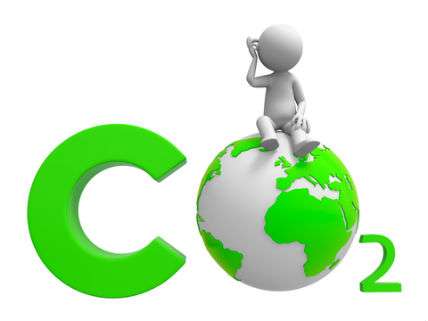Greens Against a Carbon Tax in Washington State
For some progressives it is more important to redistribute tax money than to save the climate.

If man-made global warming produced by rising concentrations of carbon dioxide in the atmosphere from burning fossil fuels poses a significant problem, then most economists think that a revenue-neutral carbon tax imposed at the minehead and the well-head is the cheapest and most efficient solution. So too should most environmental activists who are concerned about climate change. However, many environmentalist groups are surprisingly opposed to just such a proposal in Washington State.
Ballot Initiative 732 (I-732) would establish a tax on carbon emissions at $15 per metric ton of emissions in July 2017, $25 in July 2018, and then 3.5 percent plus inflation each year until the tax reaches $100 per metric ton. The tax would be phased in more slowly for farmers and nonprofit transportation providers. If adopted, I-732 could cut the state sales tax by one full percentage point from from 6.5 to 5.5 percent. It would fund the Working Families Rebate to provide up to $1,500 a year for 400,000 low-income working households to counter their increased energy expenditures. And it would essentially eliminate the Business and Occupation Tax for manufacturers, thus encouraging them to remain in the state.
I-732 aims to neither increase nor decrease state revenues; the new carbon tax would offset other taxes and there would be no additional revenue left over for Washington State politicians and bureaucrats to spend. The goal of the tax is to lower greenhouse gas emissions by incentivizing people to switch to low- and no-carbon based fuels. One would think that environmentalists would cheer and be urging Washington State residents to support I-732. However, a remarkably interesting article, "The left v. a carbon tax," over at Vox explains how many Washington State environmentalist and progressive groups came to oppose I-732.
One huge reason for their opposition is that the left-leaning groups against I-732 are against to revenue neutrality; they want to use climate policy as a way to increase tax revenues in order to "invest" in clean energy and to support "climate justice" redistribution programs. Consequently, as Ramez Naam, who has worked with the group CarbonWA to get I-732 on ballot, emailed me that its progressive opponents are essentially arguing, "Let's make the perfect the enemy of the really extremely good." He added, "On its merits, I-732 would be the strongest climate policy in North America, extremely market based, and the most progressive change to the tax code in Washington State (and possibly the biggest anti-poverty initiative here) in 40 years."
Actually, it is highly debatable that the revenue increasing proposals that Washington State's soi-disant climate progressives would prefer to enact are in any sense more "perfect" than I-732.
Jerry Taylor, the president of the Niskanen Center libertarian policy shop, favors a revenue-neutral carbon tax as a way to address concerns about climate change. When asked what he thought of I-732 Taylor responded in an email:
I-732 gets it right for the state of Washington. The initiative make polluters pay for the risks and damages they are imposing on the rest of us…and then turns around and gives that money (in the form of a sales tax cut) to those they are putting at risk. Even if corporations passed all of the tax on to consumers, a majority of the citizens of Washington would gain more in tax reduction than they would pay in higher energy prices. It is not a perfect model for federal action in that existing regulatory authority to address greenhouse gas emissions would continue to exist, but it is nonetheless a very good start.
Unfortunately, the opposition to I-732 by progressives is proving the salience of Cato Institute senior fellow Patrick Michaels' tart observation: "Do you really think $3 trillion will walk down K Street unmolested? That's what's required for a 'revenue neutral' tax." K Street is the notorious address for many of DC's more prominent lobbyists.
On the other hand, if I-732 does succeed that will provide some hope for supporters that a carbon tax could pass unmolested. A recent poll found support for I-732 at 42 percent with 37 against, and 21 percent undecided. Stay tuned.


Show Comments (106)